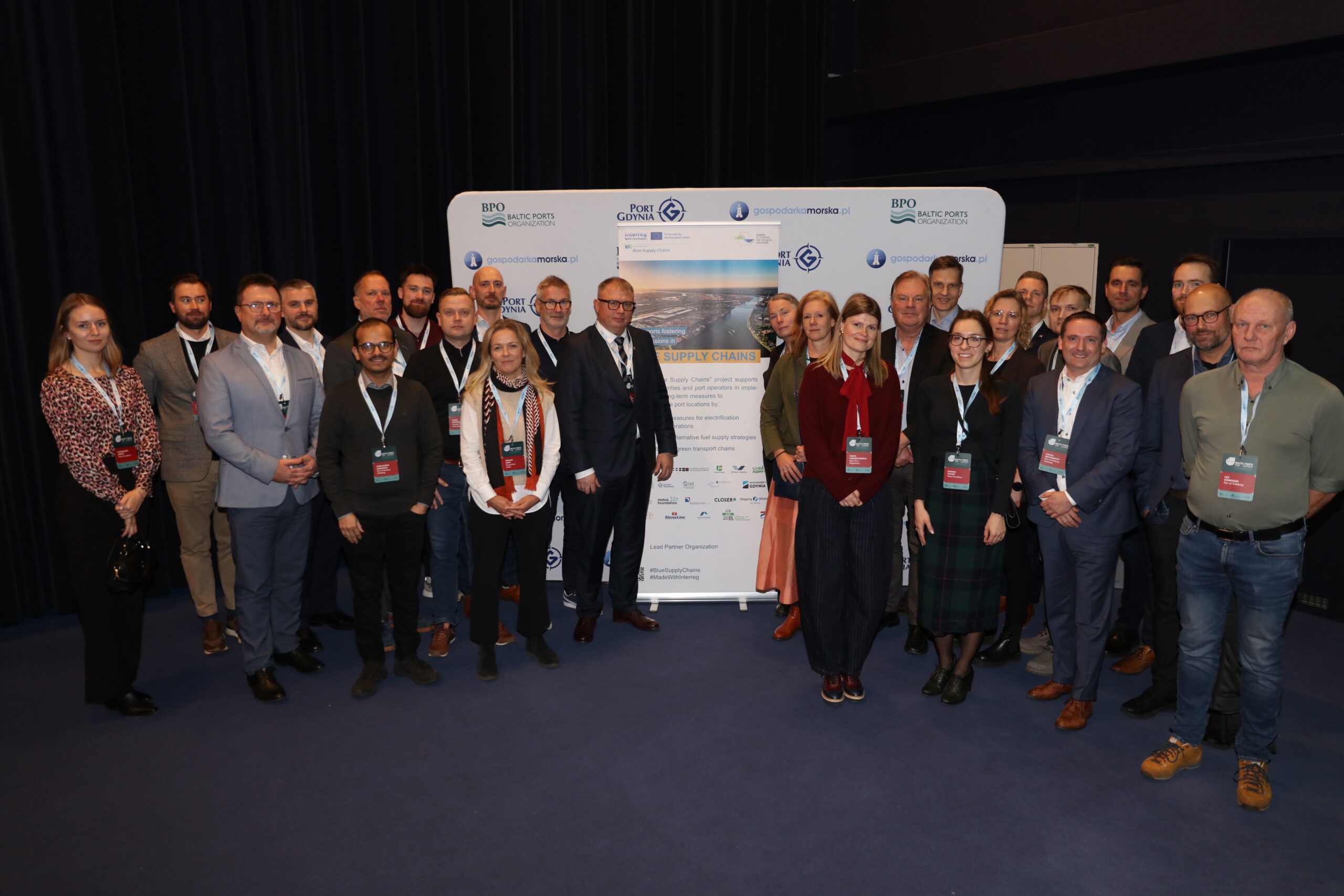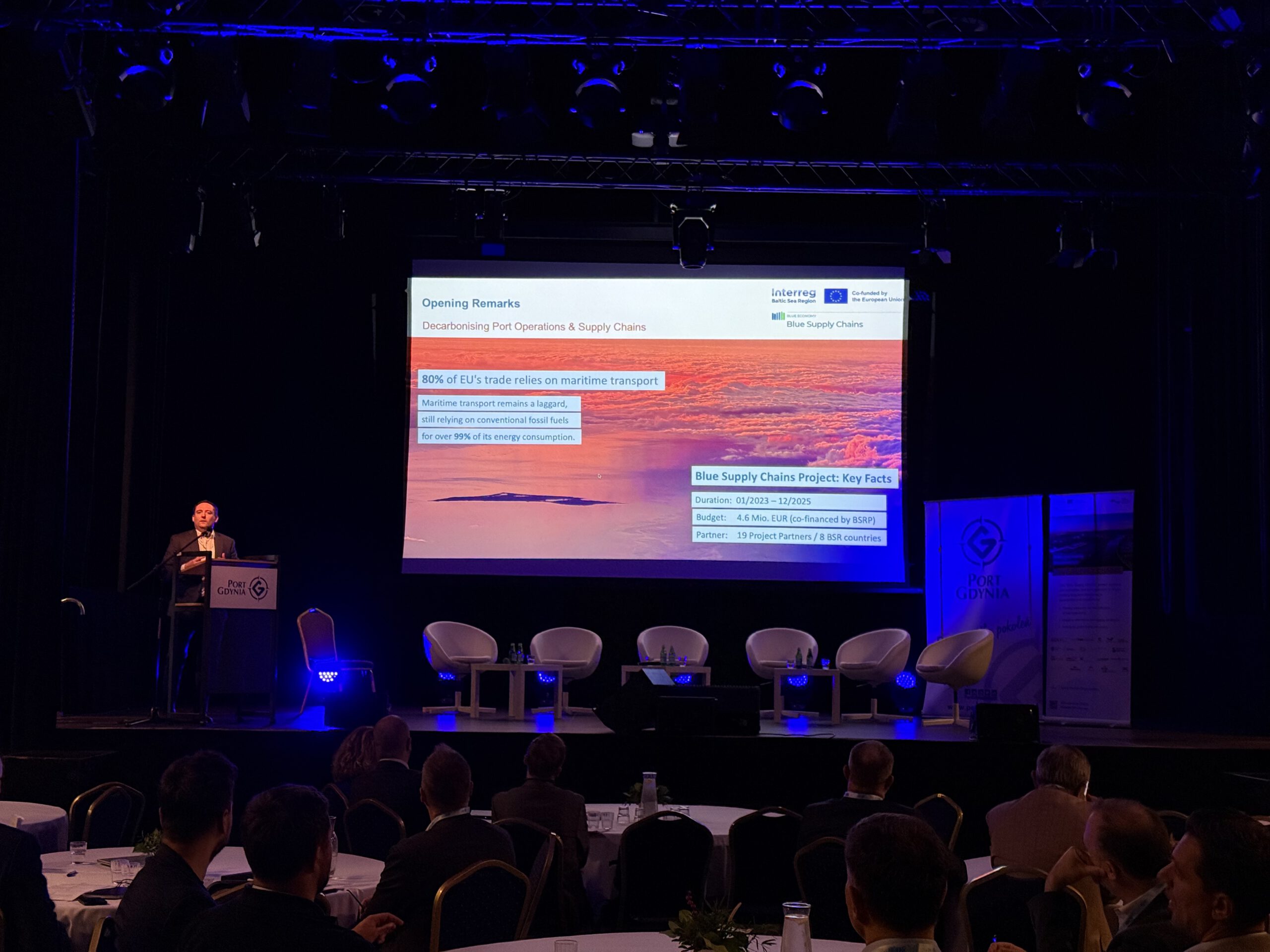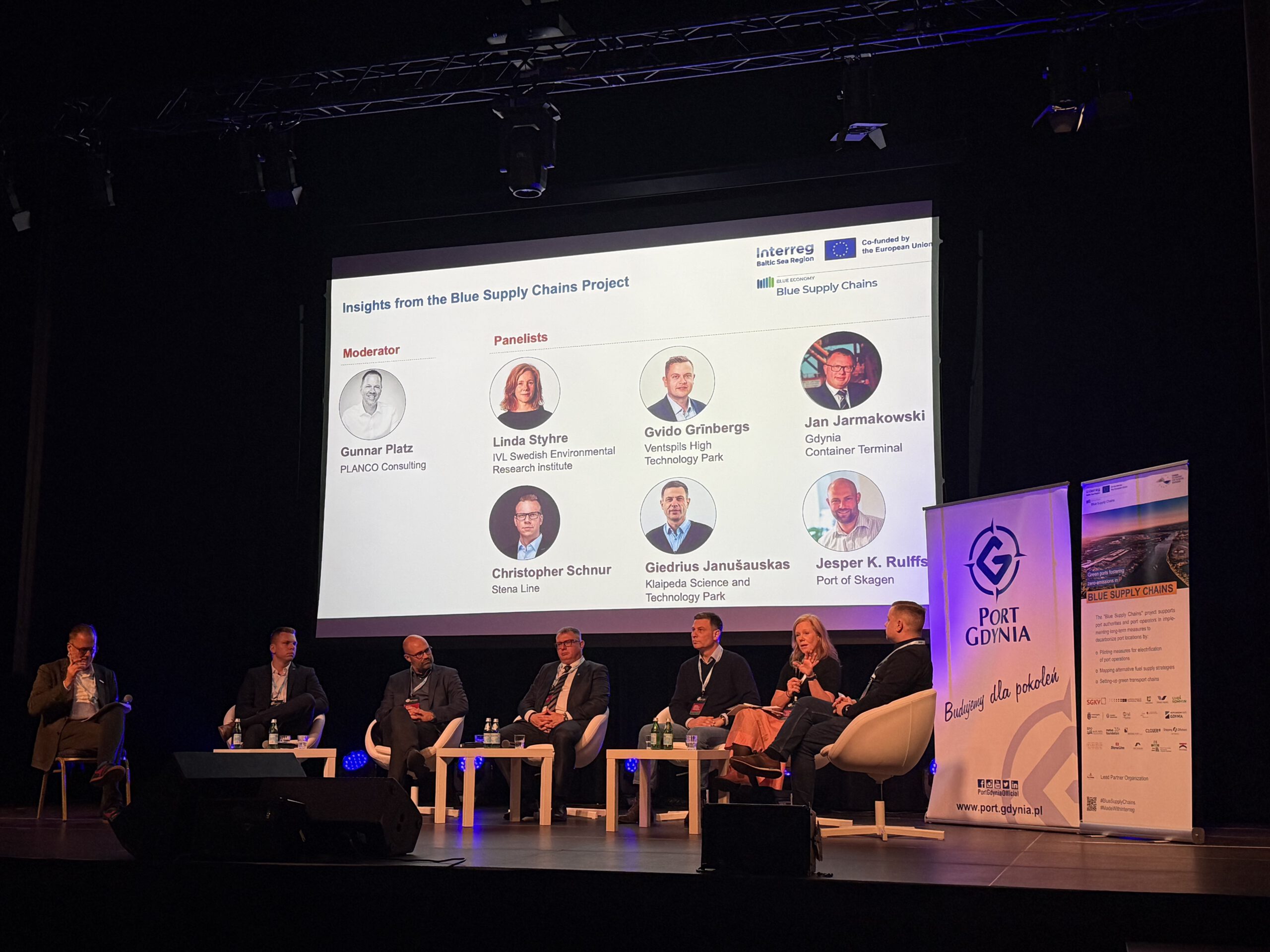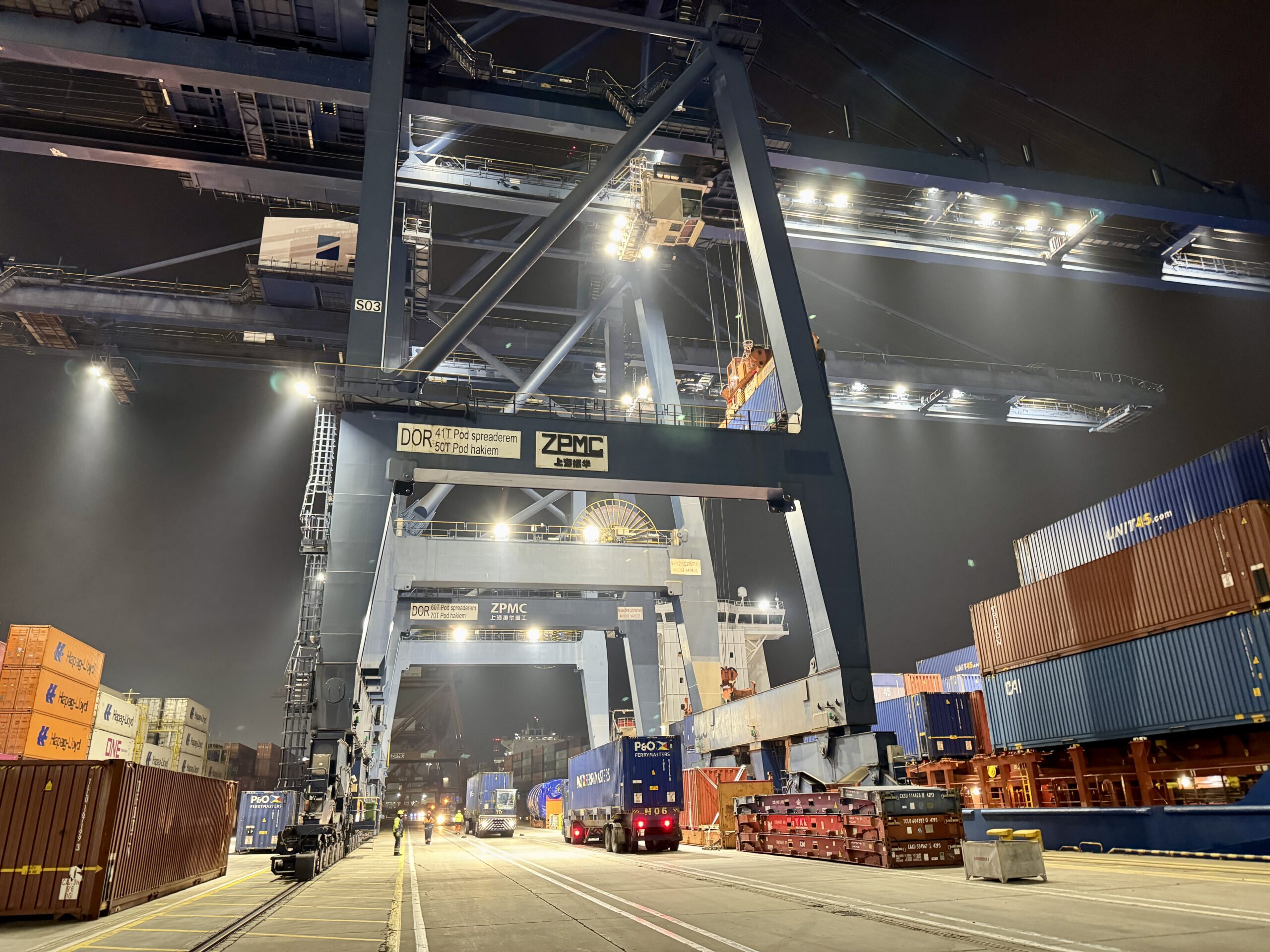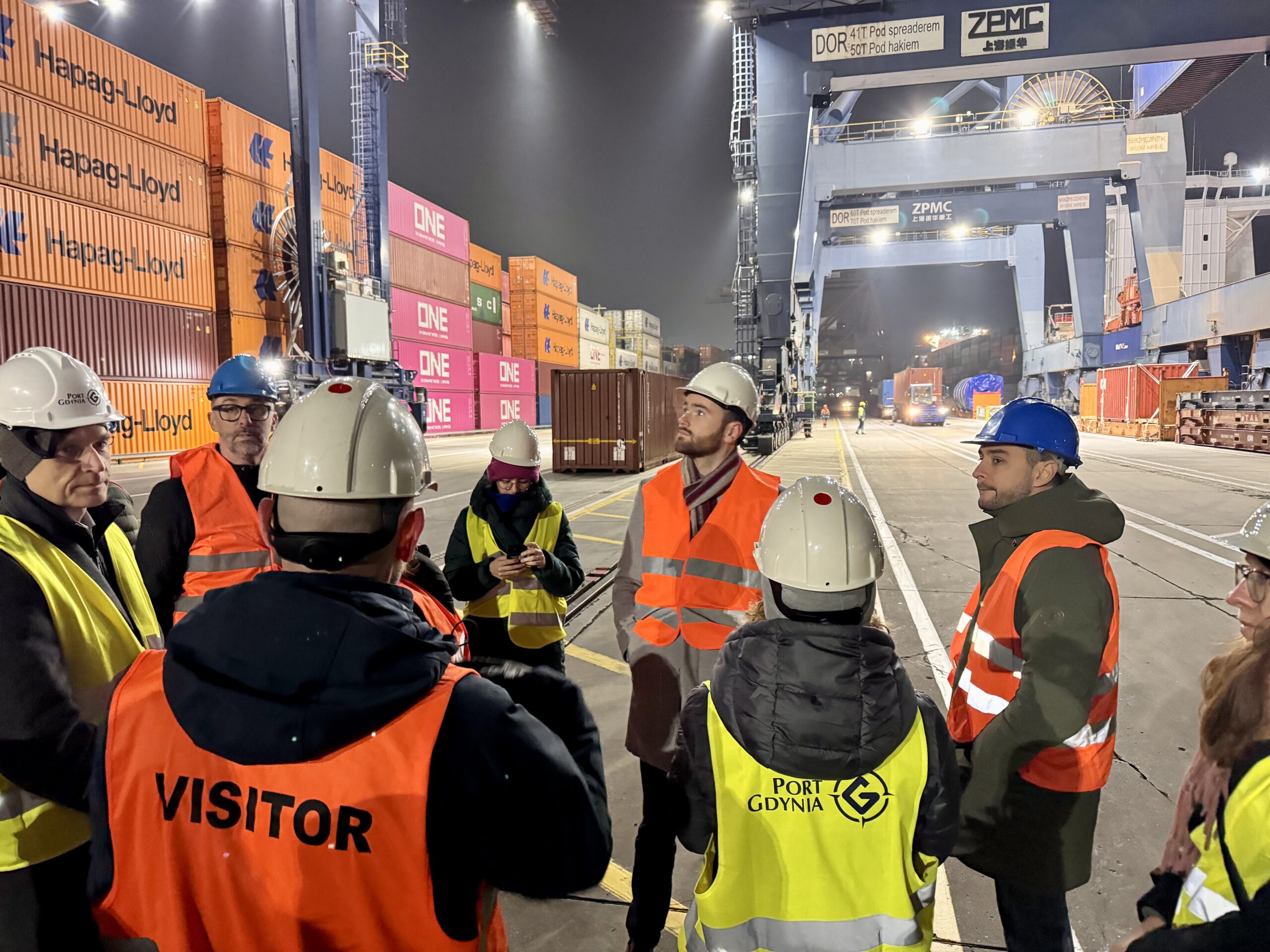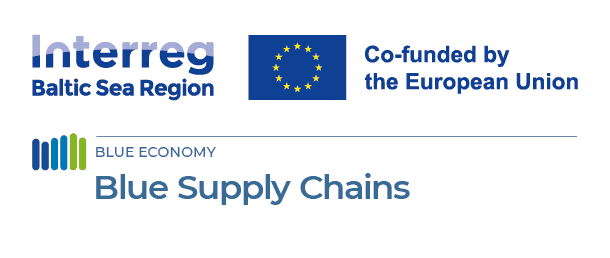
Blue Supply Chains Final Event at the Baltic Ports for Climate Conference 2025
24 November 2025
From 19 to 21 November 2025, Blue Supply Chains partners met in Gdynia for a three-day program concluding the project’s joint work. The agenda included an opening reception, the Final Conference as part of the Baltic Ports for Climate event, and the Final All-Partner Meeting hosted by Port of Hamburg Marketing and kindly supported by the Port of Gdynia Authority.
19 November – Opening Reception
Partners gathered at Browar Port Gdynia for an evening reception hosted by the Baltic Ports Organization. The informal atmosphere offered a valuable opportunity to reconnect and prepare for the upcoming sessions.
20 November – BSC Final Conference at Baltic Ports for Climate
The BSC Final Conference took place in the Port of Gdynia Concert Hall, embedded within the larger Baltic Ports for Climate event. The session “Decarbonising Port Operations and Supply Chains – Insights from the Blue Supply Chains Project” was moderated by Stefan Breitenbach (Port of Hamburg Marketing).
The conference opened with two keynote presentations. Hunter Reinhardt (Baltic Sea Region Programme MA/JS) highlighted the importance of regional cohesion and cooperation as foundations of the project. Sami Vesterinen (PA Ship, EU Strategy for the Baltic Sea Region) encouraged continued dissemination of Blue Supply Chains results and underlined the role of ports in the maritime energy transition.
The panel discussion, moderated by Gunnar Platz (PLANCO Consulting), brought together contributors from across the partnership: Linda Styhre (IVL Swedish Environmental Research Institute), Gvido Grīnbergs (Ventspils High Technology Park), Giedrius Janusauskas (Klaipeda Science and Technology Park), Jan Jarmakowski (Gdynia Container Terminal), Jesper Rulffs (Port of Skagen), and Christopher Schnur (Stena Line). The exchange focused on the practical steps required to advance port decarbonisation, including clean fuel pathways, zero-emission inland waterway development (e.g. Klaipeda–Kaunas), electrification of cargo-handling equipment, cooperation with safety and regulatory authorities, challenges of enabling infrastructure deployment, and the importance of detailed stakeholder engagement for successful green corridor development.
The session concluded with reflections from Ernest Czermański (University of Gdańsk), emphasising that the Blue Supply Chains project demonstrated how tailor-made regional solutions and strong cooperation can effectively support the decarbonisation of maritime supply chains.
Study Visits – Gdynia Container Terminal & Gdynia Ferry Terminal
The study visit began at the Gdynia Container Terminal, where Mikołaj Magiełka (GCT, member of CK Hutchison Holdings) guided the group through the container yards during a bus tour, followed by a stop to observe the retrofitted RTG crane in live operation. Despite the late hour, the visit offered a clear and practical look at the equipment implemented within the BSC project.
The group then continued to the Stena Line Gdynia Ferry Terminal, where Ewelina Ziajka (Port of Gdynia) provided an overview of the port from the rooftop viewpoint, including key operational insights and a view toward the nearby Polish Navy base. This offered additional context on the port’s infrastructure and wider maritime surroundings.
21 November – Final All-Partner Meeting at Port of Gdynia Authority
The final project meeting was held at the Port of Gdynia Authority. Stefan Breitenbach and Gunnar Platz opened the session with a brief project overview before partners began presenting final results and key lessons learned.
Ernest Czermański & Tomasz Laskowicz (University of Gdańsk) together with Mikołaj Magiełka (GCT, member of CK Hutchison Holdings) presented the Gdynia RTG case and reflected on the process of electrification at the terminal. Jesper Rulffs (Port of Skagen) discussed the OPS implementation in Skagen -highlighting the port’s proactive “first mover” approach as essential for breaking the chicken-and-egg cycle familiar to many early-stage green technologies.
The Swedish contributions were presented by Linda Styhre (IVL) and Lina Samuelsson (Umeå), who discussed green energy supply roadmaps and the Umeå case. Marius Mikoliūnas and Gvido Grīnbergs shared insights from the Lithuanian and Latvian contexts, respectively, presenting the latest developments of the implementation of the first European Zero Emission Inland Waterway as well as in green energy and innovative approaches to regional cooperation.
The topic on how to engage and coordinate stakeholders to achieve improved green transport chains was presented by Madlen Kroh (Port of Rostock), Christopher Schnur (Stena Line), Ulf Sonesson (Port of Trelleborg), and Georg Nickel (SGKV). The Rostock-Trelleborg rail–ferry link was taken as example. Their joint work demonstrated how coordinated efforts between port authorities, customers and operators can support greener, more resilient transport chains.
The meeting concluded with an outlook on how partners plan to use Blue Supply Chains results after the project’s formal end. Although this was the final in-person gathering, the partnership reaffirmed its commitment to continuing cooperation and supporting the decarbonisation of maritime transport in the Baltic Sea Region.
